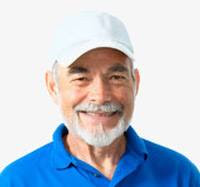
Many people aren’t ready to commit to over $100,000 in student loans for a degree they’re not sure they want at a college they’re not 100% sure they want to attend. Whether it’s a love of sports and desire to play collegiately (or even professionally), or desire for great life experience, a gap year between high school and college can provide an incredibly effective way to mentally and physically develop.
I spent my gap year trying to develop my golf skills to see if I could conceivably go the Kevin Na route: turn pro young without ever attending college. The Korean-born Na withdrew from his California high school at age 17 and turned pro, knowing that he had the skills and work ethic to succeed on the Professional Golf Association (PGA) Tour. It only took him four years to make it to the big show. After winning the Volvo Masters of Asia in 2002 he earned his PGA Tour card in 2004.
I wish I could report a similar kind of success to Na’s. However, I took the money I’d saved over years of summer jobs and before-school golf course maintenance and went to Florida to see where I stood against my golfing peers. There wasn’t the level of a national competition that the American Junior Golf Association provides these days, so I knew I needed to go where the elite golfers were to see whether I could match up: Florida.
It became clear to me quickly that I had what it took to win on an elite amateur level, the future pros had an “it” factor that my game lacked: that extra gear that enabled them to hit every par 5 in two, to birdie the last few holes to win a big tournament, that innate green-reading ability that made their 20-footers twice as likely to go in.
While I was disappointed to discover that I likely wouldn’t ever make it to the PGA Tour, I was able to study a lot of phenomenal golf swings and begin on my lifelong journey of golf instruction. Studying great golf swings in person was an excellent way to learn how golfers used their bodies to produce great shots.

After my gap year, I was able to direct my college studies to the career I now knew I wanted. I focused on business classes, sprinkled in some writing classes, and even adopted a dog that I love to bring over to my golf sessions. The year I spent golfing in Florida sparked a dream of mine: to establish my own golf course in the future and to write about the wonders of golf in the comfort of my own home until I grow old.
The gap year spent in Florida playing tournament after tournament and watching the great teaching pros work their magic on golfers who were even better than me was invaluable in confirming that I wanted to make golf my life. It gave me a clear direction that I didn’t have coming out of high school. I had time to evaluate myself and plan the groundwork for life as a teaching professional.
Other athletes’ gap years have worked out much differently. Bryce Harper felt like he was done with high school after two years. Instead of chasing his high school diploma, he bagged the title “Lebron James of baseball.” He felt like there’s more than the inside of the four corners of the classroom to explore, so he took a gap year to pursue his GED and spend some time at a junior college playing against higher-level baseball players. This enabled Harper to declare for the MLB Draft early, and at age 17 the Nationals picked him. By 19 he was in the majors, well on his way to an MVP season. Elite baseball players can absolutely benefit from a gap year or two in the minor leagues, seeing if they have what it takes to get to the major leagues without playing in college at all.
Chris Weinke famously took nearly a gap decade, spending two post-high school years playing baseball before getting drafted and spending six years in the Toronto Blue Jays’ minor league system. He got to Triple A, but never made it to the Majors. Upon quitting baseball, he enrolled at Florida State University and very quickly became the starting quarterback for the Seminoles’ top-ranked football team. At age 28, he became the oldest player ever to win the Heisman as he led FSU to an undefeated, national championship season. Weinke’s long gap between high school and college allowed him to develop both mentally and physically, and he was just a cut above the rest of the college quarterbacks he was playing against.
If you’re not specifically sports-focused, there are several excellent options for gap year programs where you’ll see the world and learn new skills. Look into GYA Accredited Programs, each with numerous participant success stories.

For golfers, gap years can be huge for developing a better resume and a better chance at a scholarship. I’ve had several students over the years who started really gaining distance around junior and senior year of high school, but hadn’t learned how to translate their newfound strength into better scores.
An extra year of learning their new game allowed them to put up great showings at amateur tournaments after high school and opened up new avenues to Division I collegiate programs that weren’t interested in the high school resumes alone.
While some high school seniors have maturity and laser focus to know exactly where they want to go to college and what they want to get out of it, most that I’ve come across aren’t quite ready to make those kinds of decisions. I highly recommend a well-spent gap year to offer a perspective that high school doesn’t provide, whether it’s learning about the drudgery of working a job that you don’t love, traveling the world and experiencing other countries, or developing further physical and athletic skills to attract college recruiters.
 Jordan Fuller is a golf coach and mentor. Ever since he was a kid, he fell in love with golf. This happened when his parents accompanied him on the golf course before his teenage years. Since that time, he loves playing golf and takes it into a serious matter. Golf has been beneficial to Jordan during his gap year at his younger age. Aside from engaging in a pastime, golf has taught Jordan a lot of things. He is now into writing and owns a golf publication site that you can find at https://www.golfinfluence.
Jordan Fuller is a golf coach and mentor. Ever since he was a kid, he fell in love with golf. This happened when his parents accompanied him on the golf course before his teenage years. Since that time, he loves playing golf and takes it into a serious matter. Golf has been beneficial to Jordan during his gap year at his younger age. Aside from engaging in a pastime, golf has taught Jordan a lot of things. He is now into writing and owns a golf publication site that you can find at https://www.golfinfluence.
*Editor’s note on generational vernacular language: Gen Z youth often use the term ‘tea’ synonymously with ‘the skinny,’ ‘the scuttlebutt’ or what’s ‘in the know.’ The title (Editor’s choice) is a play-on-words for this Gen-Z term and golf tee.
Categories
- Advising (7)
- Alumni (2)
- Career (4)
- College & University (15)
- Communication (17)
- DEIA (4)
- Fair Trade Learning (3)
- Finances (12)
- Gap Year Benefits (67)
- Growth & Development (6)
- Leadership (5)
- Learning & Reflection (54)
- Mental Health (4)
- Planning (59)
- Professional Development (4)
- Research (4)
- Risk Management (3)
- Safety (5)
- Service-Learning (10)
- Standards & Accreditation (1)
- Sustainability (6)
- Voices Project (20)
